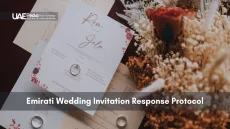Did you know 78% of patients feel more empowered when they understand their rights before stepping into a clinic? In the UAE’s fast-paced healthcare system, knowing what to expect transforms visits from stressful to seamless. This guide breaks down everything from cultural nuances to official protocols—no jargon, just clear steps.
We’ll walk through how to prepare for consultations, communicate concerns effectively, and respect local customs. Whether it’s your first check-up or you’re supporting a family member, clarity on privacy rules and consent processes matters. The Dubai Health Authority (DHA) ensures every person receives written guidelines outlining their rights—like discrimination-free treatment and access to emergency care.
Here’s what you’ll gain:
- Insider knowledge on balancing respect for traditions with modern medical practices
- Strategies to streamline bookings while safeguarding personal data
- Practical ways to advocate for yourself or loved ones during treatments
Think of this as your friendly roadmap to stress-free healthcare experiences—where cultural awareness meets confident decision-making.
Understanding Patient Rights and Responsibilities in Dubai Healthcare
Ever walked into a clinic unsure what you’re entitled to request—or required to provide? Healthcare here operates like a well-choreographed dance: your rights set the rhythm, while responsibilities keep everyone in step. Let’s unpack both sides so you glide through visits like a pro.
Your Rights: More Than Just a Bedside Manner
Every person here receives care that’s respectful, personalized, and clear. You can request treatment details in writing—diagnosis, risks, alternatives—all spelled out. Prefer a different physician? The choice is yours. Language barriers? Clinics provide interpreters faster than you can say “marhaba.”
One lesser-known right: bringing a trusted relative into exam rooms. As one hospital director puts it, “Families aren’t visitors here—they’re care partners.” You’re also empowered to decline procedures after discussing options with your care team.
Your Role: The Flip Side of Quality Care
Arriving 10 minutes early isn’t just polite—it helps staff manage time-sensitive cases. Ever fibbed about smoking habits or allergies? Full transparency lets physicians tailor treatments safely. Follow post-op instructions like you’d follow a recipe: skip steps, and outcomes might crumble.
Think of it like airport security rules. You wouldn’t argue about removing shoes; similarly, respecting facility regulations (like visitor limits) keeps everyone safe. Staff juggle emergencies daily—your cooperation lets them prioritize urgent needs without delay.
Dubai Doctor Appointment Etiquette Expectations: Best Practices for Booking and Preparation
Imagine planning a desert excursion without checking the weather—that’s what booking medical visits feels like without knowing the system. Here’s how to navigate the process like someone who’s done it a dozen times.
Booking Your Appointment Efficiently
Online portals and phone services work like airport fast-track lanes. Choose your preferred method, but always triple-check details. One wrong digit in your birthdate? That’s how mix-ups happen. As a local health center manager advises:
“Complete forms like you’re applying for a visa—precision matters.”
Need to cancel? Think of it like concert tickets—most places require 48 hours’ notice. Pro tip: Set a calendar reminder 72 hours before your slot. This gives wiggle room if plans change unexpectedly.
Preparing for Your Visit: Tips and Considerations
Pack smarter than a weekend getaway. Bring medical records like they’re passport pages—stapled, organized, and translated if needed. Arrive 15 minutes early? That’s your buffer for parking or last-minute paperwork.
Special requests—like language support—should be flagged when booking. Facilities often have interpreters ready, but they’re not mind readers. One nurse shares: “We’d rather know about dietary restrictions or mobility needs upfront than scramble mid-visit.”
Double-confirm your slot 24 hours ahead. Clinics appreciate this as much as airlines love on-time passengers. Bonus: Snap a photo of your confirmation email. It’s easier than digging through inboxes at the reception desk.
Navigating Communication, Consent, and Privacy in Medical Care
Ever left a clinic feeling like you missed half the conversation? Clear dialogue with your care team isn’t just helpful—it’s foundational. Let’s map out how to bridge gaps in understanding while safeguarding your health data like a pro.
Effective Communication with Healthcare Providers
Think of consultations as a two-way street. Physicians here explain diagnoses using plain language—no cryptic medical jargon. During examinations, expect:
- Step-by-step breakdowns of treatment options
- Visual aids or translated materials for complex terms
- Time to process risks versus benefits
One nurse shares: “We’re trained to pause after sharing big news—silence isn’t awkward, it’s respectful.” If something feels unclear, say it. Phrases like “Could you rephrase that?” or “What’s plan B?” keep dialogues productive.
Understanding Consent and Privacy Protocols
Signing consent forms isn’t just paperwork—it’s your shield. For surgeries or tests, staff will:
- Explain the procedure’s purpose in your preferred language
- Provide written details about recovery timelines
- Clarify how to withdraw consent if circumstances change
Your health rights include ironclad privacy. Medical records stay locked digitally and physically—even family members need written permission to access them. As one hospital director notes: “We guard health data tighter than VIP guest lists.”
Bring a trusted friend to critical discussions—they’ll catch details you might miss. Remember: Asking “Can I review this tomorrow?” before signing anything is always okay. Trust grows when both sides speak—and listen—with intention.
Ensuring Safety and Adherence to Hospital Protocols
Hospitals thrive on teamwork—like a symphony where every instrument plays its part. Your role? Knowing the safety score so the entire facility hums smoothly. Let’s explore how to move through these spaces confidently, whether you’re there for routine care or unexpected situations.
When Seconds Count: Emergency Know-How
Hospitals train for crises like chefs prep for dinner rush. If alarms sound, stay calm and follow staff directions—they’re your GPS in chaos. Exit routes and emergency buttons are marked clearer than airport signs. One nurse advises:
“Treat fire drills seriously—we do. They’re rehearsals for saving lives.”
Valuables? Lock them up. Facilities often provide secure storage, but it’s not a hotel safe. Lost items distract staff from critical tasks. Smoking? Banned everywhere—even parking lots. Think of oxygen tanks as open flames nearby.
Visitor Playbook: Rules That Protect Everyone
Visitor hours work like museum tickets—specific times keep units from overcrowding. Most hospitals allow 2 guests per patient, with kids under 12 restricted in recovery areas. Check-in desks issue badges faster than TSA pre-check—wear yours visibly.
Rooms have quiet hours like libraries. Noise disrupts healing. Food? Check policies first—some diets clash with treatments. A physician shares: “We’ve seen cupcakes undo a day of IV meds.”
Hand sanitizer stations are your pit stops. Use them like you’re shaking hands with the CEO—every time you enter or exit. These small acts build a safety net that lets caregivers focus where they’re needed most.
Empowering Your Healthcare Journey Through Informed Etiquette
Navigating healthcare with confidence starts with knowing the rules of the road—and your rights as a traveler. The DHA’s guidelines act like guardrails, ensuring every patient receives clear explanations about treatment plans and privacy protections. Think of it as packing your curiosity: asking questions about risks, services, or recovery timelines isn’t pushy—it’s proactive care.
Strong partnerships with hospital staff thrive when you balance respect with clarity. Share concerns openly, review consent forms thoroughly, and flag special needs early. Facilities appreciate visitors who follow safety protocols while advocating for their needs—like using online systems to streamline bookings or manage records.
Remember: Your voice shapes outcomes. Arrive prepared, communicate priorities, and trust that medical care teams value collaboration. Whether clarifying dietary limits or confirming facility rules, small steps build trust. Keep this guide handy—it’s your backstage pass to healthcare experiences where knowledge meets kindness, every time.
Most facilities allow one adult companion for support, but check hospital policies first—some units restrict visitors during examinations or post-procedures. Always prioritize patient safety and staff instructions when bringing guests.
Emergency departments operate 24/7 across Dubai. For non-life-threatening issues, use approved telemedicine apps or visit designated urgent care centers. Keep your Emirates ID and insurance details handy to speed up registration.
A> Dubai Health Authority (DHA) portals let patients submit reviews or concerns confidentially. Many hospitals also provide post-visit surveys. Your input helps improve care quality while ensuring providers uphold ethical standards.
While no strict rules exist, opt for modest, comfortable clothing that allows easy access for examinations. Avoid strong perfumes in shared waiting areas, and silence phones to maintain a calm environment for all.
Absolutely—it’s your right. Frame it as wanting “additional perspective” rather than distrust. Most doctors will gladly share your records with another specialist. Just ensure proper consent forms are signed for data transfers.
Federal law mandates hospitals provide interpreters for non-Arabic/English speakers. Request this service when booking. For complex procedures, bring a trusted bilingual contact to review consent forms and aftercare instructions.
A> Policies vary—government hospitals often restrict under-12s from inpatient areas, while private centers may allow brief visits. Call ahead to confirm age limits, and always supervise kids to avoid disrupting others’ recovery.

















